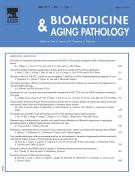Assessment of facial emotions recognition in aging and dementia. The development of a new tool - 10/05/14


Abstract |
The recognition of emotions from facial expressions is a basic human aptitude. The aging process is related with a decrease of this ability, particularly in the recognition of negative emotions. This decrease is more prominent in the context of dementia. Despite the growing of researches on emotion recognition, there is a lack of instruments capable of identifying individual differences regarding aging and dementia. This work aims to determine the psychometric properties of a facial emotion recognition task (Gandra-BARTA). The sample is composed by three groups: Young Adults (YA) group (n=12); Old Adults (OA) group (n=17); Alzheimer's Disease (AD) group (n=26), made up of subjects with diagnosis of probable AD. The Gandra-BARTA showed good internal consistency. In comparison to the YA, the OA group took more time to complete Gandra-BARTA, had less correct emotional identifications and they have under-recognized facial expressions of rage and neutral emotions. On the other hand, the AD group showed worst performance on every aspect of the Gandra-BARTA when compared to the OA group, except in the identification of sadness and fear. A cutoff score of 24 correct recognitions on Gandra-BARTA differentiate OA from AD subjects with a sensibility of 100% and a specificity of 88.5%. The Gandra-BARTA revealed good internal consistency making it a reliable instrument to assess the ability to recognize emotions from facial expressions. It also proved to be sensitive to changes in aging and dementia with high discriminant validity for AD.
Le texte complet de cet article est disponible en PDF.Keywords : Alzheimer's disease, Normal aging, Neuropsychological assessment
Plan
Vol 4 - N° 2
P. 91-94 - avril 2014 Retour au numéroBienvenue sur EM-consulte, la référence des professionnels de santé.
L’accès au texte intégral de cet article nécessite un abonnement.
Déjà abonné à cette revue ?

